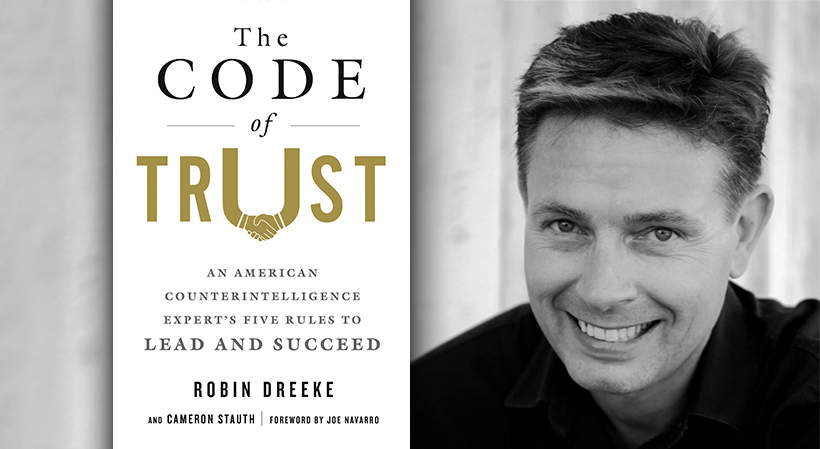Here’s a strategy for reaching your dream now: stop focusing on all the goals that you’re convinced will get you there. Seriously.
Cut to the chase. Start at the end.
Reaching your heart’s desire is a mission that’s classically cluttered by obsessing over the means-goals that will get you to your end-goal.
Dream big, in the here and now, and your lifetime goal will probably be closer than you think. It might be right in front you.
For once, forget about “I need funding,” or “I want a promotion,” or “I need to close this deal.” Instead, ask yourself: why? To what end?
The end is probably to be so prosperous and influential that you can do what you’ve always wanted to. The fastest way to get there, though, is to figure out exactly what you ultimately want to do, share that dream with others and see if that’s their final destination, too. If it is, start doing it, together, minute by minute and day by day. It’s the shortcut to reaching your dream.
If you don’t help other people reach their dreams, you probably won’t reach yours. What’s your chance of getting investors if the investment doesn’t fit their dreams? How can you get better office space without a record of being a great tenant? Who will inspire you if you don’t inspire them?
But when you fix your attention on building happy, healthy relationships with people that you can communicate with openly and honestly, and link your dream with theirs, trust blooms, powerful coalitions emerge and magic happens.
When your long-term goals mesh with others, most of your means-goals and immediate priorities will naturally overlap, and you’ll all move forward: not effortlessly, but happily. Once you’re moving together, as a team of trust, on a mission that’s your dream, it will feel as if you’ve already arrived.
People who reach their dreams often say that the best part was the journey that took them there. What they mean is that the journey was the destination. They started at the end, and loved every minute of it.
The following excerpt is from “The Code of Trust” by Robin Dreeke. Copyright © 2017 by the author and reprinted with permission of St. Martin’s Press, LLC.
Studies show that sleeping during a process of problem solving usually improves the end result, partly because even during sleep, your brain is still working on your problem—but in a different way.
When you’re awake, your brain usually takes the shortest path of connected brain cells to a fact that it wants to find. Taking the shortest neuronal pathway is very efficient, but only to a point. If you’re really struggling to remember, it can overload that path with bioelectrical activity, creating the traffic jam of thought that we all call brain freeze: the failure, typically under pressure, that comes from trying too hard.
Sometimes you just give up, and then the fact suddenly appears, as if by magic.
It’s not magic but simple biology. Your brain is under the least amount of pressure when you’re asleep, and it settles for taking longer, less direct routes to information. It rambles around, runs into all sorts of interesting things, sorts options and sees the big picture. That’s why you sometimes wake up with great ideas, strong gut feelings—or the elusive fact you’d been trying to find.
A similar phenomenon occurs emotionally. When you’re too focused on a goal (usually something that’s very immediate) your fixation can become the enemy of the goal’s achievement. That’s why you need to step back from the daily grind while you’re setting your ultimate goal, and summon visions of your own big picture: your view of your ideal, almost perfect life, and best possible self—not just in the here and now, but in a future that can be almost unfathomable, if you fail to look hard enough.
Your vision of that perfect life and ideal self—your dream—is always there, and maybe you’ve seen it in your nightly dreams, but felt it fade away in the hard light of day.
Maybe you did see it during the day, but thought it was so distant that holding it in your heart would be a torment.
Related: SMART Goal Setting for Your Business
Don’t give up. Even just glimpsing your goal gives you a chance to grab it.
If you have the courage to hope, your ultimate goal sometimes appears as spontaneously as a fact you actually knew but couldn’t find. It bursts from behind clouds of lesser goals, and obstacles that seemed insurmountable but weren’t.
Your ultimate goal may initially seem too amorphous for action: an all-encompassing goal that’s too obvious and remote to bother with. But being all encompassing is its value. It becomes the North Star of your journey, and your travels become not just a process but a mission.
Your mission, for example, may be to achieve enough financial independence to work at your dream job. Or to not have a job at all. Or to work hard at a serious hobby, like painting, or writing. But if you don’t designate one of those as your ultimate goal, you might get side-tracked into thinking that your mission is to make a big salary, or save every penny, or to invest with the skill of Warren Buffet.
Those are reasonable goals, but they are not your mission, and may not even be necessary in achieving it. You might achieve your mission of working at your dream job by just adjusting your expenses, or finding a more practical dream job that you like even better.
When you know your ultimate goal, the decisions you need to make each day become so much easier, because you simply have to ask yourself: Is what I’m about to do or say going to help me reach my ultimate goal, or hinder me? You become virtually immune to the emotional hijacking that can occur when you face a petty insult, or need to need to swallow your pride.
Sign Up: Receive the StartupNation newsletter!
Even just knowing your ultimate goal grants peace of mind, because you realize that each of your intermediate goals isn’t make or break.
“The Code of Trust” is available now at fine booksellers, and can be purchased through StartupNation.com.
Reviews of “The Code of Trust”
“Smart, empowering, and easy to follow, Dreeke’s manual should become a classic business―and personal―primer on the art of building trust.”
―Publishers Weekly
“Dreeke delivers a pragmatic, patriotic recipe for the key ingredient of leadership: trust. A book of broad application with useful lessons for everyone from Girl Scouts to corporate masters to world leaders―and aspiring spies, too.”
―Kirkus Reviews
“As someone who has spent my career in the public and private intelligence fields, I feel this work provides great insights into the social psychological aspects of interpersonal dynamics from someone who has spent a lot of time in analyzing the criminal mind. A great insight for anyone with an interest in social psychology and how it impacts interpersonal relationships.”
―Phil Houston, CEO QVerity, 26 year veteran of CIA and co-author of the New York Times best-sellers “Spy The Lie and Get The Truth”
“To paraphrase Charles Dickens, it is the best of times, the worst of times, the age of wisdom, the age of foolishness, the spring of hope, the winter of despair. “The Code of Trust” is an antidote to the cynicism and fear of today. Robin Dreeke, my friend and colleague from the FBI, will take you on a delightful journey — his journey– to more effective leadership at a time when we ache for such genuine skills in others.”
―Reid Meloy Ph.D., forensic psychologist, author, and consultant to The FBI






